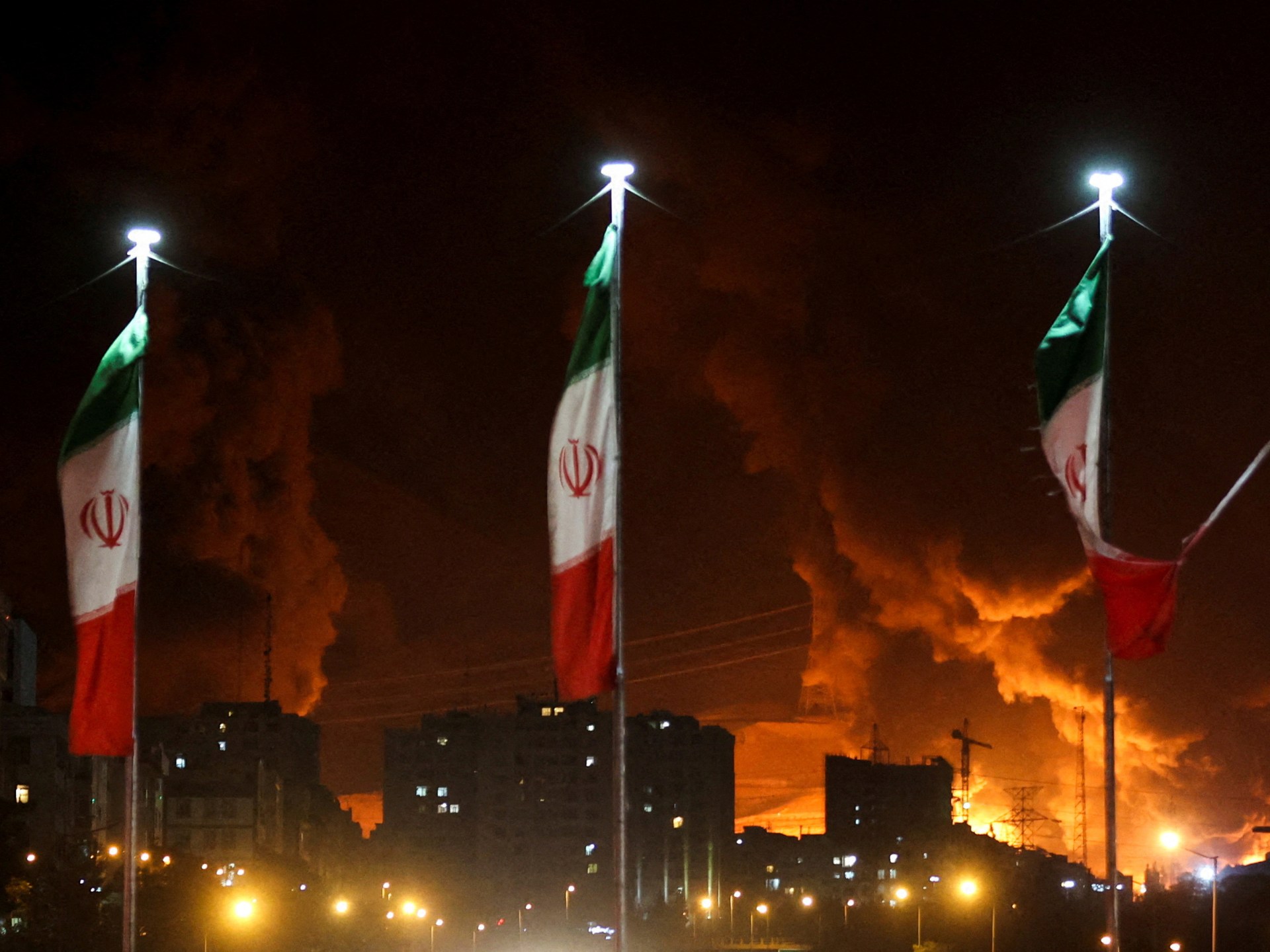Crude oil prices jump more than 4 percent on fears the US may join Israel’s offensive against Iran.
Oil prices have spiked over fears that the Israel-Iran crisis could spiral into a broader conflict involving the United States.
Brent North Sea crude and West Texas intermediate – the two most popular oil benchmarks – rose 4.4 percent and 4.3 percent, respectively, on Tuesday as US President Donald Trump demanded “unconditional surrender” from Tehran.
The benchmarks stood at $76.45 and $74.84 per barrel, respectively, after the jump.
Oil prices edged up further in early trading on Wednesday with both benchmarks about 0.5 percent higher as of 03:30 GMT.
US stocks fell on the rising geopolitical tensions overnight with the benchmark S&P 500 declining 0.84 percent and the tech-heavy Nasdaq Composite down 0.91 percent.
Israel has bombed multiple oil and gas facilities in Iran since Friday, including the South Pars gasfield, the Fajr Jam gas plant, the Shahran oil depot and the Shahr Rey oil refinery.
While there has been little disruption to global energy flows so far, the possibility of escalation – including direct US involvement in Israel’s military offensive – has put markets on edge.
On Tuesday, Trump ratcheted up his rhetoric against Iran, adding to fears that his administration could order a military strike against Iran’s uranium enrichment facility at Fordow.
In a thinly veiled threat against Iranian Supreme Leader Ali Khamenei, Trump said in a Truth Social post that the US knew his location but would not have him killed “at least for now”.

Iran has the world’s third largest reserves of crude oil and second largest reserves of gas, although its reach as an energy exporter has been heavily curtailed by US-led sanctions.
The country produced about 3.99 million barrels of crude oil per day in 2023, or 4 percent of the global supply, according to the US Energy Information Administration.
Iran also sits on the Strait of Hormuz, which serves as a conduit for 20 to 30 percent of global oil shipments.
Nearly all of Iran’s oil exports leave via the Kharg Island export terminal, which has so far been spared from Israeli bombing.
Clayton Seigle, a senior fellow at the Center for Strategic and International Studies in Washington, DC, said in an analysis published this week that Israel could target Iran’s oil exports in the belief that “working to finish off a hostile regime is worth the risk of alienating allies concerned with potential price escalation”.
Thomas O’Donnell, an energy and geopolitics analyst affiliated with the Wilson Center in Washington, DC, said OPEC members would be able to make up for any decline in Iranian oil production, provided Israel’s offensive is targeted only at Tehran’s nuclear programme.
“There’s no fundamental reason there should be a shortage of oil on the market if OPEC, OPEC+ responds and can make up for all the exports of the Iranians and still have spare production off market. Plus there’s also the possibility of non-OPEC, such as American frackers, to respond.”
But a broader Israeli offensive aimed at regime change, which would likely include strikes on Kharg Island, could lead to Iran taking action to inflict “maximal damage” on international oil supplies, O’Donnell said.
“There’s the question of blocking the Strait of Hormuz, which they could try to do,” O’Donnell said.
“The other thing that the Iranians can clearly do is to hit the Saudi refining capacity and really cripple Saudi oil production and export capacities,” he added.





